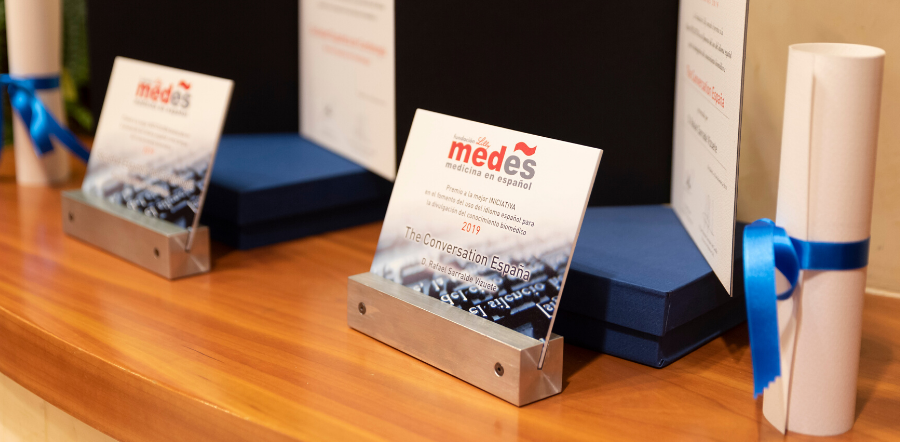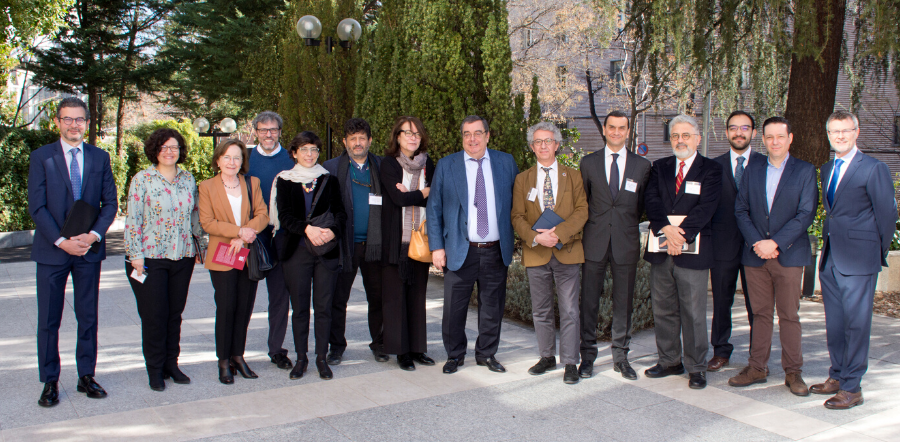MEDES – MEDicina en ESpañol
MEDES – MEDicina en ESpañol es una iniciativa singular que tiene como objetivo promover la utilización del español como lengua para la transmisión del conocimiento científico en general y de las ciencias de la salud en particular, entendiendo este propósito no solo orientado a la comunicación entre científicos y profesionales de la salud, sino también a la divulgación social del conocimiento entre todos los hispanohablantes.
Durante casi dos décadas la base de datos MEDES ha prestado un servicio de búsqueda de bibliografía biomédica en español a millones de usuarios en el ámbito de los países de habla hispana, llegando a ser una base de datos de referencia; principalmente, por la calidad de sus contenidos y su continua actualización.Esto ha sido posible gracias a la extraordinaria labor profesional de las personas que día a día han venido realizando el trabajo de documentación; y, también, sin duda, gracias al excelente asesoramiento y apoyo continuo de los miembros del Comité MEDES.
Desde el día 1 de abril, la base de datos MEDES ha quedado suspendida indefinidamente dado que la Fundación Lilly desea impulsar el resto de las iniciativas que conforman el proyecto MEDES-MEDicina en ESpañol, y dedicar a ellas todos los recursos.
Así pues, la Fundación Lilly continúa volcada en el proyecto MEDES-MEDicina en ESpañol, del que, con el mismo objetivo de promover el uso del español en la transmisión del conocimiento científico, sigue potenciando las Jornadas anuales, seminarios, foros, las publicaciones, los premios, y otras nuevas iniciativas relacionadas con el español y la ciencia.
Desde MEDES se llevan a cabo diversas iniciativas en línea con la promoción de la ciencia en español. Entre ellas, destacan la Jornada MEDES y los Premios MEDES.

Premios MEDES
Conoce la iniciativa
Jornada MEDES
Conoce la iniciativa
El español y la Ciencia
Conoce las actividades


